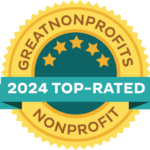Today, we are excited to share a new publication by Christopher Armstrong, PhD, & colleagues: “Discriminating ME/CFS and Comorbid Conditions Using NMR Metabolomics in UK Biobank.”
The Heart of the Matter
- The OMF Melbourne ME/CFS Collaboration recently published an article on their project using metabolomics to identify ME/CFS.
- The team analyzed metabolomics data on over 80,000 participants in the UK Biobank with ME/CFS or one of seven comorbid conditions and non-diseased controls.
- The metabolomics profiles were used to identify differences and similarities between ME/CFS and comorbid conditions that might provide insight into the underlying mechanisms of ME/CFS.
- The team also trained a machine learning algorithm to identify ME/CFS with 83% accuracy, which may help with diagnosis in the future.
Discriminating ME/CFS and Comorbid Conditions Using NMR Metabolomics in UK Biobank

On November 26, Dr. Chris Armstrong, the Director of OMF’s Melbourne ME/CFS Collaboration, published an article from his group at the University of Melbourne that used metabolomics and basic health information to distinguish ME/CFS from comorbid conditions and non-diseased controls. ME/CFS is difficult to diagnose, in part due to the wide variety of symptoms it presents with and the prevalence of comorbid conditions, so this project ultimately aims to facilitate diagnosis in the future.
The team utilized metabolomics profiles, collected through nuclear magnetic resonance (NMR) spectroscopy, of people in the UK Biobank with ME/CFS, seven comorbid conditions, and a non-diseased control group. The seven comorbid conditions included are hypertension, asthma, irritable bowel syndrome, depression, hay fever, hypothyroidism, and migraine. Importantly, the project benefits from the large scale of the UK Biobank, with anywhere from 850 to 13,500 participants in each disease group.
When comparing ME/CFS to other diseases, the team found markers of inflammation and abnormalities in cholesterol and triglycerides. They were also able to identify gender-specific differences in the metabolomics profiles of ME/CFS participants. Furthermore, a subset of 168 markers showed overlapping associations with the comorbid conditions studied. Collectively, the differences and similarities found between ME/CFS and other diseases may help provide insight into the underlying mechanisms of ME/CFS.
Building on these findings, Dr. Armstrong and his team trained a machine learning algorithm to identify ME/CFS. Using 19 baseline characteristics from participant-provided survey data and 9 NMR markers, the algorithm could identify ME/CFS with an AUC of 0.83 (accuracy of 83%)—typically, an AUC above 0.8 indicates good discrimination. Ultimately, this is another step towards finding diagnostic targets for ME/CFS, as the team proposes a process that could be used in the clinic in the future to identify ME/CFS in patients.
Read the full article in Nature Communications.


